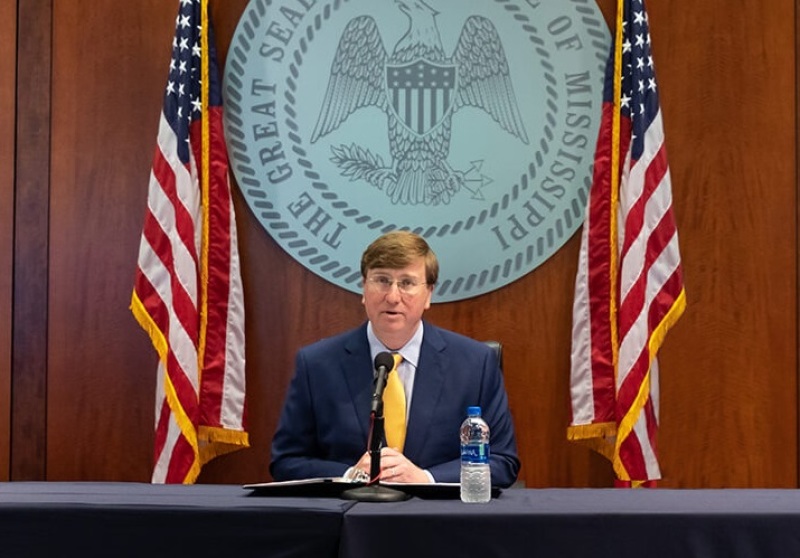
Mississippi Governor Tate Reeves has signed into law the protection of unborn babies detected to have down syndrome last Thursday.
"Protecting the sanctity of life is among the most important things we as believers are called to do--'Therefore choose life, that you and your offspring may live.' Deut. 30:19," Gov. Reeves tweeted on Friday.
His post is actually a retweet of Susan B. Anthony List's thanking him for signing the Hudson Law and a link to their official statement and a simple infographics on the announcement.
"Thank you Gov. @TateReeves for signing Hudson's Law and State Sen @JeremyEnglandMS & State Rep @JansenOwen for championing this bill requiring docs to provide accurate information to parents of unborn children diagnosed with #DownSyndrome," the pro-life organization said on the same day.
According to FaithWire, the law is named as such in reverence to the two-year old boy with Down Syndrome from Mississippi named Hudson Hartman whose mother, Mika, was among those who pushed for the Life Equality Act.
The Life Equality Act, as per FaithWire, is a legislation that prevents discrimination abortion, which is based on disability, genetic makeup, race, and sex. The act was signed into law last summer by Governor Reeves and will now go hand in hand with the Hudson Law, which is officially called the Down Syndrome Information Act.
"We thank Governor Reeves for signing Hudson's Law and for his strong pro-life leadership in Mississippi. This law goes hand in hand with the Life Equality Act and will serve as an important check to ensure that doctors are empowering parents of children who have Down syndrome with accurate information and resources," Susan B. Anthony List State Policy Director Sue Liebel said in their official statement dated March 18.
"Parents deserve to know that 99% of people with Down syndrome live happy and fulfilled lives," she stressed. "No child should be deprived of the right to be born, especially due to a disability--this is no less than modern-day eugenics."
England, on the other hand, narrated in Facebook how he came to work on the Hudson's Law, which started last year through the Life Equality Act. He said he was approached by friend and neighbor who happend to be Mika Hartman to pass a "follow-up legislation" to the Life Equality Act. England said Mika shared her own experience on her pregnancy with Hudson and "did not want this to happen to other prospective parents here in Mississippi."
"Hudson's Law requires the Mississippi Department of Health to gather information on chromosomal disorders, including information on physical development, life expectancy, support organizations, etc., and to make the information available to those physicians and providers that give a diagnosis to prospective parents. The providers are then required to give the information to the prospective parents at the time of diagnosis," England said before thanking his co-legislators, the governor, the Hartmans, and other people who made the signing of the law possible.
FaithWire added that, as per a CBN News report last December, Mississippi ranks fourth on the annual list of the Americans United for Life pro-life states followed by Indiana, Kansas, Arizona, Missouri, South Dakota, and Idaho. The top three are Arkansas, Louisiana, and Oklahoma.
Meanwhile, according to the Susan B. Anthony List website, 70% of Americans "oppose abortion based on the expectation that an unborn child may have Down syndrome" based on a poll they conducted last year. This includes 56% of Americans who identify themselves as "pro-choice," as well as, 59% of Democrats and 70% of Independents.
The Susan Anthony B. List explained in their website that Down syndrome is a "highly complex genetic condition, but is also highly complex sociological phenomenon" and that federal funding for it "lags considerably behind other similar genetic disorders". There are 6,000 babies born in America each year with Down Syndrome.
"The live birth incidence is about one in 700. Down syndrome is the most common genetic cause of intellectual disability, with the U.S. population estimated to be between 250,000 and 400,000 people, and the worldwide population at six million," they said.


























